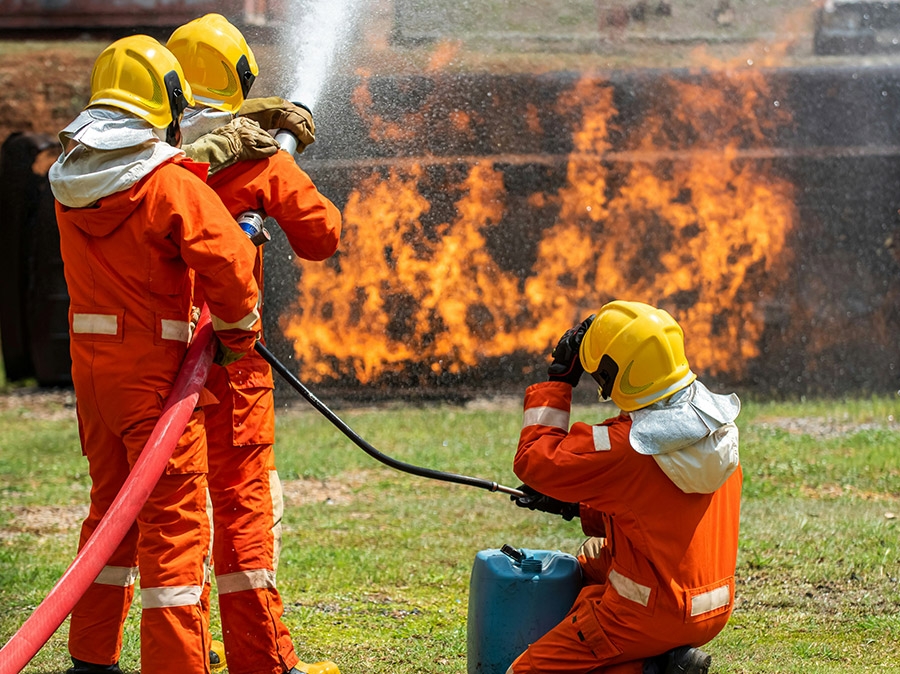Tags
WHAT IS A ENG1 MEDICAL?
Your ultimate guide to the ENG1 Seafarer Medical Certificate.
So you're thinking about working aboard luxury yachts? Well, before you pay for any courses or head to Antibes, there’s a crucial document you need to secure: A ENG1 'Seafarer Medical Certificate'. This guide is your go-to for everything you need to know about the ENG1—what it is, why it's essential, and how to get it.
What is the ENG1 Seafarer Medical Certificate?
The ENG1 is the official seal of approval from the Maritime and Coastguard Agency (MCA), confirming that you are medically fit to work on a seagoing vessel. This isn’t just any medical checkup; it's a specialized exam designed to make sure you’re physically capable of handling the unique challenges that life at sea entails. If you're planning to serve on a yacht or hold a UK Certificate of Competency (CoC), this medical certificate is your ticket to set sail.
Why do you need an ENG1?
The ENG1 exam isn’t just a formality. Its purpose is to ensure you’re fit for the physical and mental demands of working on a vessel. If you have any underlying medical conditions that could be exacerbated by life at sea, or that could pose a risk to your fellow crew members, this exam will identify those.
Think of it as a way to protect both you and your crew—it’s essential for your safety, and it’s also a legal requirement for the vessel to be insured. Insurance companies mandate that yachts comply with safe manning standards, and part of that compliance is ensuring all crew members are STCW compliant. To get your STCW (Standards of Training, Certification, and Watchkeeping) Basic Safety Certificate, an ENG1 is a must. So, no ENG1, no STCW, no yacht job!
When should you get your ENG1?
Pro tip: If you’re serious about a yachting career, get your ENG1 as soon as possible. You’ll need it to start working, and it can even be required to enrol in STCW courses. Plus, it’s good to know early on if there’s anything health-related that might restrict your job options aboard.
Your ENG1 will last for two years if you pass, so you’ll need to renew it biannually to keep that dream yacht gig!
Where can you get an ENG1?
You can’t just pop into your local doctor’s office for this one. The ENG1 exam must be carried out by an MCA-approved doctor. Fortunately, there are plenty of approved practitioners across the UK and in popular yachting hubs like France, Spain, and the US. So, whether you’re in London or lounging in the South of France, you should be able to find a qualified doctor nearby.
The website below will help you find a location near you https://ukshipregister.co.uk/seafarers/medical-fitness/approved-doctors
As for the cost? In the UK, the maximum fee is £115, but outside of the UK, prices can vary since there are no government subsidies. And if you’re already employed, lucky you—your employer should foot the bill.
What to bring to your ENG1 exam?
Once you’ve booked your ENG1 appointment, make sure to bring:
- A photo ID (passport or driver’s license).
- Your current ENG1 (if you’re renewing).
- GP contact details and any relevant medical correspondence.
- A list of medications you're currently taking.
- Glasses or contact lenses if you use them.
What happens during the ENG1 exam?
Relax, the ENG1 exam is straightforward and typically takes about 30–40 minutes. Here’s what you can expect:
- Height and weight measurements.
- Eye and colour blindness tests.
- Hearing test.
- Throat, ear, teeth, and gum evaluations.
- Reflex and blood pressure testing.
- Urine sample to check kidney function and blood sugar levels.
- A listen to your heart and lungs.
- Hernia test (yes, you'll have to cough!).
- Most people pass on the spot and walk away with their shiny new ENG1 certificate.
Will I need a drug test?
While drug tests aren't a standard part of the ENG1 exam, they could be included if there’s a reason for clinical suspicion. Many yacht employers will also require drug testing, so it’s something to keep in mind. Recreational drug use might not affect you immediately, but some substances stay in your system for weeks—so it’s best to be cautious if you’re heading out to sea.
What if I fail the ENG1?
Don't worry—it’s not the end of the world if you don’t pass. There are three possible outcomes:
1. Fit without restrictions (the golden ticket).
2. Fit with restrictions (meaning you might have limitations on certain roles or locations).
3. Unfit (temporarily or permanently).
If you receive a “temporarily unfit” result, it could mean your doctor needs more information from your GP. You can also appeal the decision or request a review through the MCA if you feel the result was unfair.
For those who struggle with colour vision tests, there’s hope! If you fail the initial screening, you can take the Colour Assessment Diagnosis (CAD) test, which costs around £100-£150. If you pass, a restricted ENG1 might still be an option.
Step one complete.
Getting your ENG1 is one of the first and most crucial steps on your journey to working on yachts or ships. It ensures you’re not only fit for the job but also ready to tackle the unique demands of life at sea. So, book your ENG1 exam, gather your documents, and get ready to launch your seafaring career.
Bon voyage!







